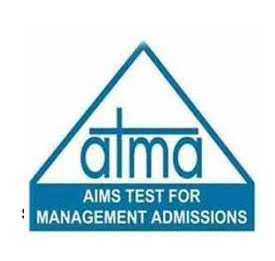Doctor of Philosophy in Biotechnology is an intensive research doctoral degree that equips students for undertaking careers at elevated levels in research and development, academics, and biotech industries. The duration is usually 3 to 5 years and varies with the research outcome, experimental setup, and findings of the candidate.
The program focuses on research skills like experimental design, data analysis and collection, scientific report writing, publishing, peer review, and communicating research findings. The program is given hands-on training in qualitative and quantitative research methods, particularly using biological samples.
A PhD in Biotechnology enables students to specialize in any of the core disciplines that contribute to innovative science and technology advancements. With the discipline continually spreading worldwide, a PhD in Biotechnology provides prospects for dignified and secure careers at universities, research institutions, and biotech companies worldwide.
- PhD Biotechnology Course Highlights
- What is a PhD in Biotechnology?
- Why Pursue PhD in Biotechnology?
- Who Should Choose a PhD in Biotechnology?
- PhD Biotechnology Eligibility
- PhD Biotechnology Admission Process
- PhD Biotechnology Colleges in India
- PhD Biotechnology Syllabus
- PhD Biotechnology Jobs & Salary
- PhD Biotechnology Vs PhD Biomedical Engineering
- PhD Biotechnology FAQs
PhD Biotechnology Course Highlights
Given below are the highlights of the PhD Biotechnology course:
What is a PhD in Biotechnology?
A PhD in Biotechnology is a doctorate programme that can be pursued after an MSc Life Science or M.Phil in Biotechnology or an equivalent life science subject.
- It is a research and development-oriented programme that demands sound knowledge of subjects like biochemistry, analytical techniques, bioinformatics, genetics, disease biology, human physiology, etc.
- Biotech PhD trains the student for processing organic samples, embryological processes, conducting research experiments, and publishing the new developments in the field.
Why Pursue PhD in Biotechnology?
A PhD in Biotechnology guarantees a well-reputed and high-paying job in advanced research areas, either in academia or industry. It adds knowledge and expertise in the life science domain, enhancing the intellect of an individual.
- During the PhD, one can get a government fellowship based on various categories. The fellowship amount ranges between INR 15,000 to 45,000.
- A person with a Biotechnology PhD can work in research industries, universities, diagnostic labs, the pharmaceutical industry, etc.
- They can also turn into entrepreneurs with ground-breaking research and development ideas that benefit society.
Who Should Choose a PhD in Biotechnology?
Individuals who have a set of skills to pursue a PhD in Biotechnology should possess the following:
- Those who adore higher-level scientific research and development in the field of the biological sciences, such as molecular biology, genomics, and bioprocessing.
- The candidates who strive to be research scientists either at academia, industries, or in government research centers as drug development specialists, agriculture biotech solutions, environmental solutions, and healthcare technology solutions.
- Prefer to develop competence as a leader in R&D projects, as a manager of biotech products, or regulatory affairs and clinical research experts.
- Seek speedier job growth and greater earning power that a PhD will bring in the biotech industry.
PhD Biotechnology Eligibility
To enrol in PhD Biotechnology, one has to qualify for the entrance exam and interview conducted by UGC, CSIR, the State government, or Universities.
- A Bachelor's degree in Science with Biotechnology/Biochemistry/Microbiology or equivalent degree (B.Tech Biotechnology or other life science subjects), followed by M.Tech in Biotechnology.
- The candidates will require a minimum 55% or above to apply for any entrance exam, be it CSIR NET, LUPNEST, etc., for PhD Biotechnology.
- According to the latest National Education Policy, candidates with 10+2+4 (bachelor's 4 years) can directly apply for the PhD entrance test.
PhD Biotechnology Entrance Exam
There are various entrance exams for enrolling in Biotech PhD. These exams are conducted either by the state government, the central government, or private universities. If candidates have qualified for one of the government entrance exams for a PhD, they are eligible for admission in any private or government university. However, students with no qualified entrance exam are required to qualify for the university-level entrance test of the specific university.
PhD Biotechnology Admission Process
Government universities and research labs give admission based on the cut-off scores of competitive exams and subsequent interview performance. The PhD Biotechnology admission at IIT Bombay is given below.
Step 1: The candidates should fulfill the eligibility criteria of the course.
Step 2: Fill in the application online at the IIT Bombay official admission portal on time, typically, around the beginning to the middle of April.
Step 3: The candidates need to appear for the exams like GATE, CSIR-UGC NET JRF, JEST, etc., as accepted by IIT Bombay. However, candidates who do not have these certificates can opt for the exam conducted by IIT Bombay.
Step 4: The Department of Biosciences and Bioengineering invites shortlisted candidates to sit an exam and/or interview on the basis of the results of the application and examination.
Step 5: The concluding steps involve picking candidates based on the written examination (in case one was conducted), interview, academic achievement, research proposal/statement of purpose, and the entire eligibility.
Step 6: The selected candidates will be called for the document verification process.
Step 7: Once done with the verification process, the selected candidates are offered admission and get enrolled by paying the fees and providing the necessary documents.
PhD Biotechnology Colleges in India
There are various research labs, universities, and colleges that offer a PhD in Biotechnology. Some of the well-known institutes are tabulated below.
PhD Biotechnology Syllabus
A PhD in Biotechnology is a research-based programme that involves coursework, practical training, seminars, conferences, and presentations. Given below is the syllabus from the JNU Delhi:
PhD Biotechnology Jobs & Salary
A Biotech PhD offers a number of opportunities in the field of medical research, academics, pharmaceutical research, animal research, etc.
- One can join a research centre as a Junior Research Fellow (JRF), Senior Research Fellow (SRF), Scientist, or Research Associate in various research centres and industries.
- People also work on a contractual basis with government-funded projects.
- Those who wish to work in academics can join as an assistant professor and get promoted to associate professor or professor by advancing their research experience. Here are some of the jobs after PhD Biotechnology given in the table below:
PhD Biotechnology Vs PhD Biomedical Engineering
PhD Biotechnology puts more emphasis on the aspects of life science research and biological innovation, whereas PhD Biomedical Engineering is more concerned with the development and advancement of the technological equipment and devices applied in healthcare
PhD Biotechnology FAQs
Is it compulsory to publish research papers to complete a PhD in Biotechnology?
As per recent UGC guidelines, it is not mandatory to have a publication for completing a PhD, but many private universities require at least 2 publications in Scopus-indexed journals.
Can I join as a JRF and enrol in a PhD?
Yes, one can join the project as JRF and later register for a PhD. One must go through the requirements for registration in a specific institute for such an admission category.
Do I have to pay the fees even if I get the government fellowship?
The amount of fees for a PhD depends on the university's policies. Government universities do not charge for a PhD, but private institutes may ask for fees even if you get a fellowship from the state or central government. However, they may give fee waivers up to a certain percentage.
Can I do a PhD in Biotechnology remotely?
No, this is a full-time course that demands laboratory work, academic duties, and regular meetings about progress. However, paper writing or thesis writing can be done remotely if your supervisor allows.
Is a PhD in Biotechnology worth it?
PHD in Biotechnology is a good course that offers advanced research and innovation in both biological sciences and technology. It even provides advanced careers in the field of pharmaceuticals, healthcare, agriculture, environmental science, and biotechnology. As a PhD, the candidates may work as a research scientist, project manager, academic professor, biotech consultant, or an entrepreneur.
What is the stipend for a PhD in Biotechnology?
The average stipend of Biotech PhD is about INR 30,000 to 50,000 a month in the initial years and between INR 50,000 and 80,000 in the middle years. The fellowships, such as UGC/CSIR JRF, DBT-JRF, and AICTE doctoral fellowship, provide various stipends and research funding for PhD.
Which university is best for a PhD in biotechnology?
Concerning the best university for a PhD in biotechnology, the top institutes are IIT Bombay, IIT Kharagpur, IIT Delhi, and IISc Bangalore, which also have great research facilities and faculties. Other notable universities include the Jawaharlal Nehru University (JNU), Banaras Hindu University (BHU), etc.











